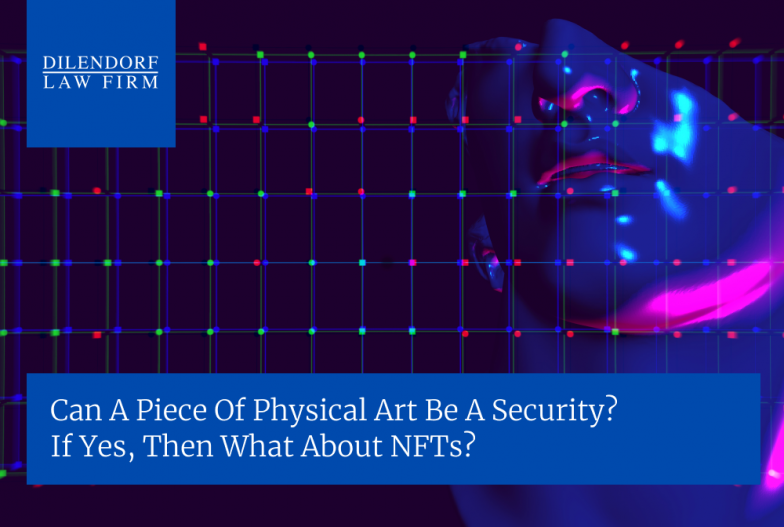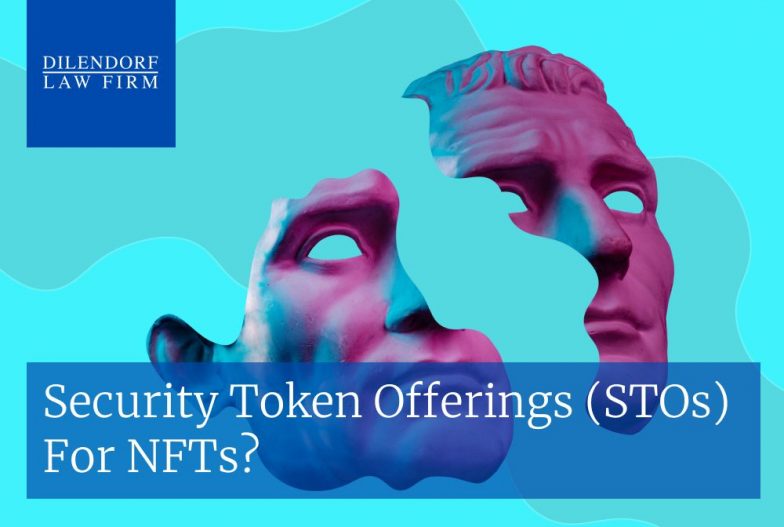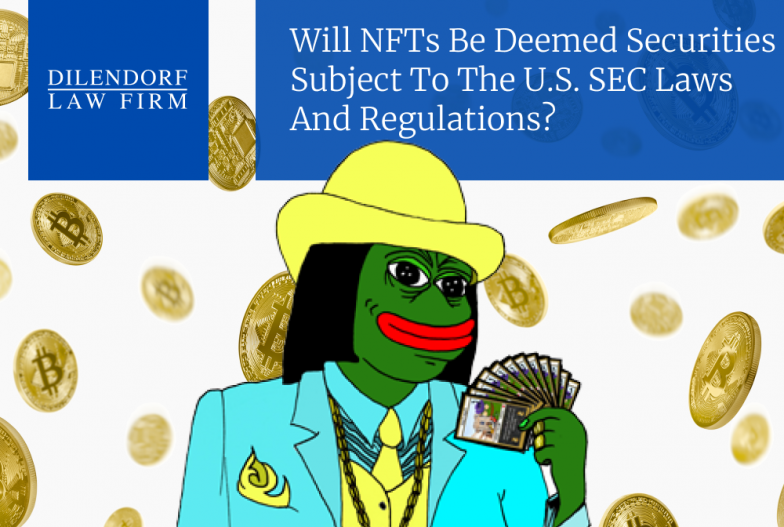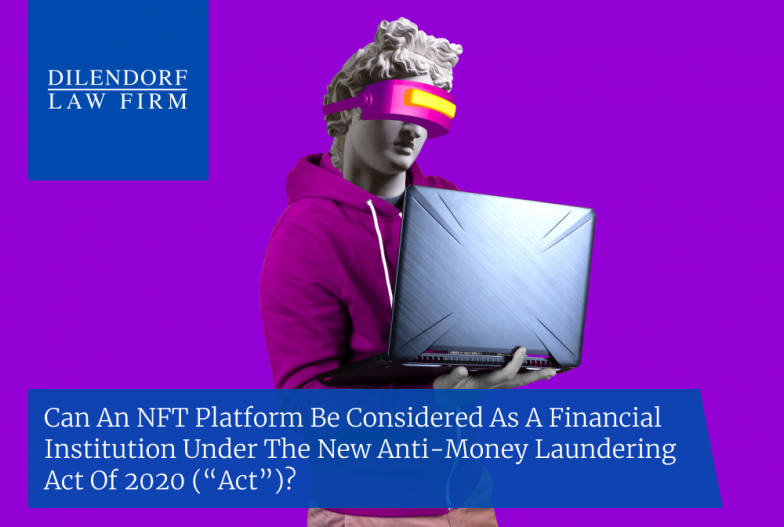Unlocking the Future of Art Ownership: Introducing Tokenized Art
Tokenized art is the practice of transforming a physical or digital artwork into a digital asset on the blockchain.
This is achieved through the creation of a security token that represents ownership interest in the artwork. By using this method, art ownership can be divided into fractional shares, making it possible for multiple investors to purchase and exchange ownership stakes in the artwork on security token marketplaces, also known as ATS platforms.
Tokenized art has the potential to transform the way in which art investors and sponsors finance, acquire, hold, earn revenue from, and trade art assets.
Tokenization provides distinct benefits over traditional investment methods, such as:
- Increased Liquidity
- Access to Global Pool of Investors
- Lowered Barriers to Entry for Investors
- Improved Transparency
Comprehensive Guidance in the Face of Complexity
From a legal, practical, and technical standpoint, tokenizing art is a highly advanced and innovative process.
We provide comprehensive guidance to our clients, helping them to comprehend and effectively plan for the intricate network of variables that can influence art tokenization transactions, such as:
- The type of art to be tokenized (paintings, sculptures, digital art, etc.);
- The appropriate structure (fund, SPV, hybrid) and jurisdiction for the type of interest;
- Tokenization ratio;
- Any encumbrances or liens on the artwork;
- Smart contracts used to define the token rights and implement the token sale;
- Compliance with federal and state securities laws and regulations;
- Adhering to federal and state tax and reporting requirements;
- Maintaining a record of token holders, reporting obligations, and re-sales; and
- Meeting AML/KYC and investor accreditation requirements during the token sale and secondary trading, if applicable.
Art STOs Can Be Conducted Under Exemptions from SEC Registration: Reg D, Reg S, Reg A+, Reg CF
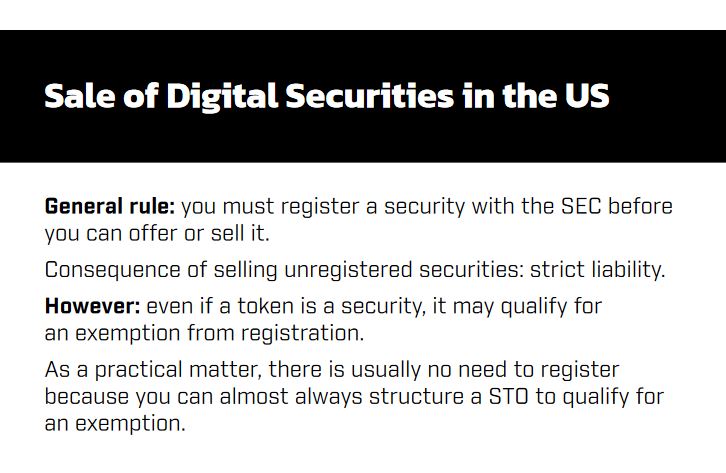
Before any security, including a security token, can be sold or offered in the United States, it must be registered with the Securities and Exchange Commission (SEC) or meet the criteria for an exemption.
Registering a security can be a costly and time-consuming endeavor. However, if an exemption is applicable to the offering, then it does not need to be registered.
In the case of tokenized art, most offerings are structured under one of the following exemptions from registration as provided by the US Securities Act: Regulation D, Regulation S, Regulation A+ or Regulation CF.
Secondary Trading of STOs
To launch a successful art STO, issuers must adhere to compliance standards, establish a stable governance structure, and ensure that their shares can be traded on regulated Alternative Trading System platforms (ATS) in the United States, Europe, and Asia.
It is essential to address the compatibility of minted art STO tokens with the chosen regulated ATS platforms beforehand since different tokenization and ATS platforms have varying standards and blockchain protocols.
STO issuers should establish contact with their chosen ATS before the primary issuance to ensure that their digital securities’ configurations match the platform’s requirements, and pre-listing procedures are followed.
Some ATS platforms offer all-in-one tokenization, marketing, and listing services, simplifying the process, but thorough due diligence is still necessary to avoid any potential issues.
Recalling flawed security tokens and replacing them with new ones may seem like a simple technical solution, but it may not be possible or may be costly and complicated from a legal standpoint.
STO defects can be incurable, leading to the disqualification of the security from being listed on a regulated trading platform, resulting in the loss of the digital security’s value and even liability for violating securities and other laws.
At Dilendorf Law Firm, we understand the complexities of the tokenization process and the potential issues that can arise. Our deep knowledge of art, tax, and securities laws, along with our experience in launching blockchain assets, enables us to assist our clients in successfully navigating the legal, practical, and technical complexities that come with the tokenization of art.
Our Services
At Dilendorf Law Firm, we are here to help you navigate the exciting world of tokenized art with our comprehensive legal services. Our dedicated team will guide and support you through every step of the process, ensuring a seamless and successful experience tailored to your unique needs.
Legal Advisory
- Structuring Tokenization Projects: Our team of experienced attorneys will help you plan and structure your tokenization project, considering various factors such as asset type, target audience, legal jurisdiction, and investment structure, to ensure a seamless and successful launch.
- Ensuring Compliance with Relevant Laws and Regulations: We will guide you through the complex legal landscape surrounding tokenized art to ensure compliance with applicable laws and regulations, including securities law, intellectual property law, and more.
- Preparing and Reviewing Legal Documentation: Our attorneys will draft, review, and revise all necessary legal documentation, including terms and conditions, purchase agreements, licensing agreements, and other contracts, to protect your interests and minimize potential legal risks.
- Advising on Intellectual Property Rights: We will provide guidance on the management and protection of intellectual property rights for tokenized art, including copyright, trademarks, and licensing, to ensure that your assets are protected and any potential disputes are mitigated.
Regulatory Compliance
- Ensuring Compliance with AML and KYC Regulations: Our team will assist you in implementing comprehensive Anti-Money Laundering (AML) and Know Your Customer (KYC) procedures to meet regulatory requirements and prevent potential legal issues related to money laundering or financing of terrorism.
- Providing Guidance on Securities Law: We will advise you on the appropriate regulatory framework for your tokenized art project, helping you to navigate the complex rules and regulations surrounding securities and ensure compliance with applicable securities law.
- Navigating Tax Implications for Tokenized Art: Our attorneys will provide guidance on the tax implications of tokenized art transactions, both domestically and internationally, helping you to minimize your tax liabilities and ensure compliance with relevant tax laws and regulations.
Art Tokenization Framework
- Selecting the Appropriate Blockchain Platform: We will advise you on the most suitable blockchain platform for your tokenized art project, considering factors such as security, scalability, and interoperability, to ensure a smooth and efficient tokenization process.
- Establishing Smart Contracts for Ownership and Royalties: We will help you design and implement smart contracts that govern the ownership and distribution of royalties for your tokenized art, ensuring a fair and transparent system that aligns with your objectives.
- Creating a Secure and Transparent Tokenization Process: Our attorneys will guide you in implementing best practices for a secure and transparent tokenization process, including cap table management, asset verification, and tracking, to protect your interests and maintain the trust of your investors.
Dilendorf Law Firm is committed to providing exceptional legal services and support for your tokenized art projects.
To get started, schedule a consultation with our team, who will be eager to assist you in realizing your vision and ensuring a seamless and successful experience.
Don’t hesitate to contact us at (212) 457-9797 or via email at info@dilendorf.com to schedule a consultation and take advantage of our extensive knowledge and experience in the tokenized art space.
